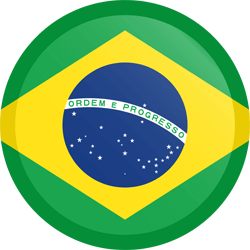The United States Brazil Comparative Law Institute (USBCLI) is a civil, non-profit association based in Brasilia. A study center on the political, economic and mainly legal systems of both countries, with the aim of sharing ideas, experiences, practices, as well as contributing to the dialogue and exchange of knowledge between the two nations, which together add up to more than half of the population of the Americas and present themselves as the two largest economies.
These are Christian majority countries, colonized by Europeans and that broke ties with their metropolises in a relatively short time, the “Thirteen Colonies” in 1776 and Brazil in 1822. As I had the opportunity to register elsewhere “both used a large mass of slave labor from Africa and approved the abolition of slavery in the 19th century, the United States in 1865, by constitutional amendment, Brazil 23 years later, in 1888, by ordinary law. ”[1]
The United States has the primacy of being the first country to recognize the Independence of Brazil, when on May 26, 1824 President James Monroe received José Silvestre Rebello, appointed by Emperor Pedro I as Brazilian representative (Chargé d’Affaires) in Washington . Before that, even in the colonial period, trade was already intense, with North American ships frequenting the ports of Salvador, Recife and Rio de Janeiro. In 1876 Pedro II himself was the “second” Head of State to officially visit the United States.
The Constitutional History of the United States has exercised and continues to exercise a broad and profound influence on Brazilian constitutionalism. It all started in 1891 with the first Republican Constitution (the second in the history of Brazil, the first monarchical era), which incorporates many of the legal institutions that the 1787 US Document brought to light. Following the North American model, Brazil adopted the Republic, the bicameral federative Legislative (House of Representatives and Senate), the Supreme Court and also became a Federation. Inspired by John Marshall’s lesson in Marbury v. Madison (1803), Brazil introduced judicial review in the 1891 Constitution and maintained it in all subsequent constitutions, including the current one, in 1988. U.S. Supreme Court decisions are often cited by the Brazilian Federal Supreme Court.
During World War II our countries fought together against the Axis. Natal, in Rio Grande do Norte, was the headquarters of an important American air base and, in return for the assignment of the area, the United States financed (Eximbank) the construction of the Companhia Siderúrgica Nacional, the first major steel company in the country and a landmark of extreme importance for the development of the then incipient Brazilian industrial park. On July 17, 1994, the Brazilian team won for the fourth time, the Soccer World Cup, in Pasadena, in the United States.
Brazil and the United States, two agribusiness powers, are, as it turns out, close in several aspects. This proximity is an absolutely reasonable invitation to create an Institute dedicated to improving these links, promoting and expanding bilateral dialogue on cultural, economic and legal aspects of both countries.
The United States Brazil Comparative Law Institute (USBCLI) is dedicated to all of this, and aims to:
• Promote Brazil-United States cooperation
• Enhance bilateral dialogue on cultural, economic and legal aspects
• Contribute to the exchange of knowledge between the two nations
• Disseminate and encourage the study of the History of both countries
• Explain the structure and functioning of the Executive, Legislative and Judicial Powers
• Organize seminars and symposiums on the role of both countries and periodically hold monograph contests
• Produce economic, social and outlook reports in both countries.
• Establish partnerships with national and foreign entities that grant scholarships that benefit Brazilian students and researchers in the United States and Americans in Brazil
• Encourage access for underprivileged students to free English language study
• Raise awareness among opinion makers, entrepreneurs, professionals and teachers about the importance of strengthening relations between the two nations
• Disseminate, in Brazil, the North American culture of philanthropy
• Expand and strengthen the ties between Brazil and the United States of America
João Carlos Souto, President and founder of the United States Brazil Comparative Law Institute (IBEC-USBCLI), Professor of Constitutional Law, Master and PhD student in Public Law, Attorney of the National Treasury.
[1]. SOUTO, João Carlos. Suprema Corte dos Estados Unidos – Principais Decisões. São Paulo: Gen/Atlas, 3ª edição, 2019, p. 179.


